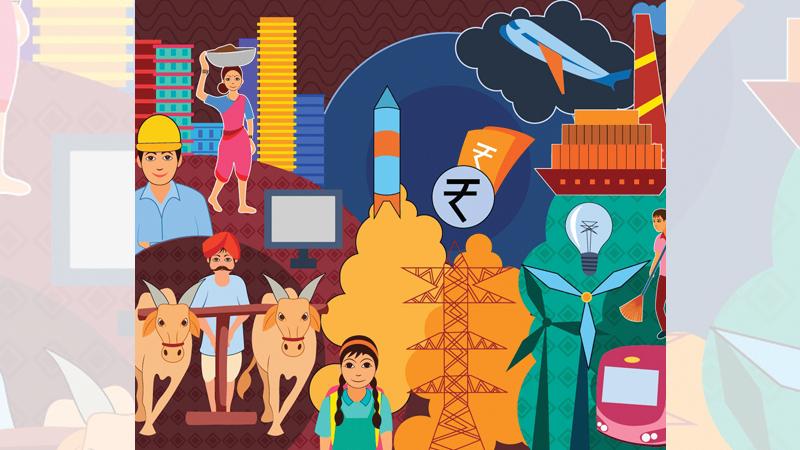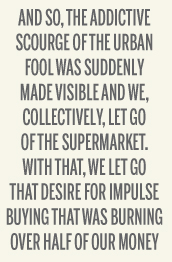
We have no money. Covid-19 saw to that. We all know that Covid-19 is not a crisis but another resultant outcome of a series of global crises fuelled by human idiocies. Global predictions are that there will be no going back to those bad old ways that brought about a near apocalypse. While such global concerns are certainly a nightmare for a state almost irrevocably bound by various modern economic instruments that have been killing the country for years, its impact on the people is less severe. Sure, it was tough for a lot of us at the start but we adjusted. Quickly. We reverted to the things that have kept our people going generation after generation – the way we acquired things and shared the things that we acquired. Here the ‘we’ I mention is the urban ‘we’. I addressed to some extent, the trials of the rural ‘we’ last week.
When push came to shove, when everything shut down, we, armed with belated insight, sought succour from that genta a few lanes down who had a handsome karapincha tree or the assistance of that lady who lived down our lane with a tree decorated from trunk to top with jak fruit or bread fruit or just any kind of fruit. We learned to wait for the guy on the bicycle or motorcycle or tuk bringing everything from pharmaceuticals to fish.
We discovered to our post-dumb amazement that their goods were better quality than anything we could get at a supermarket. We discovered it was cheaper, and in quite a few instances, delivery services were thrown in for free.
 With the slow dawning realisation that comes to the newly intelligent, we questioned both our previous sources for the things we need and the quality of those things. We, forced into super smartness, let go of the supermarket. “Why…” we reasoned, “…should we pay more for less in quality and service”. We muttered to ourselves, “When we can obtain a fresh bundle of karapincha delivered to our doorstep, why pay five times the price for a few tired strands of it grabbed from a lit up air conditioned box?” When the bounty of the local breadfruit tree was being shared by all in the community, why do we need to hunt for a place to pay for it” we growled.
With the slow dawning realisation that comes to the newly intelligent, we questioned both our previous sources for the things we need and the quality of those things. We, forced into super smartness, let go of the supermarket. “Why…” we reasoned, “…should we pay more for less in quality and service”. We muttered to ourselves, “When we can obtain a fresh bundle of karapincha delivered to our doorstep, why pay five times the price for a few tired strands of it grabbed from a lit up air conditioned box?” When the bounty of the local breadfruit tree was being shared by all in the community, why do we need to hunt for a place to pay for it” we growled.
Scourge
And so, the addictive scourge of the urban fool was suddenly made visible and we, collectively, let go of the supermarket. With that, we let go that desire for impulse buying that was burning over half of our money.
It was not so much a case of ‘money is short and we must cut down on purchases’. Rather, it was a case of understanding that money will continue to be short, it will continue to lose value, it will increasingly become more expensive to obtain.
It was a reduction of self-created complexities. It was a cognizance of the fact that a readjustment of the rationale for life was now compulsory. It was a clear perception of the fallacy of the argument for acquisition and greed.
If you are one of those who says she will never ever forget that small grocer down the road who got her a bag of rice when there was none available you are in the majority these days. If you are smiling contentedly that you have actually more savings now than you had before Covid-19, you are in the majority.
If you are rethinking all the loans you took to show sweet nothings to darned idiots whom you called “your social orbit” you are in the majority. If you found new meaning to life by sharing the produce of your small home garden with your neighbours you are in the majority. If you found that you no longer felt the urge to ‘go out’ to find meaning to life, you are in the majority.
Indeed, the larger percentage of the population of our urban centres have, without really knowing it, subscribed to the wonders of micro-economies in micro-geographies whose mainstay are micro-entrepreneurs and micro-barters. Within these, the sum total of economic effort is synergic, careful, non-wasteful and to a large extent, homogenous.
If such systems, freshly created out of emerging necessities are nurtured, grown, matured and consolidated, then, external dependencies that can kill off these small enclaves will be either substantially reduced or completely eradicated. If that happens, then the next Covid, tsunami, fiscal crisis, or whatever other threat, cannot really do much lasting damage to them.
If that happens, then the reason why we live in societies – security, equity and contentment – will largely be met – regardless of how the country, region or planet performs. If that happens, the phrase ‘self-determination’ will take on a wider, deeper and more community enriching meaning than the tired individualism that is destroying our planet.
If that happens, the meaning of work takes on a less unsafe, less stressful, less damaging meaning than haring off to work bound over with nooses and shoes, imprisoned in SUVs and targeting penitentiaries masquerading as officers.
If that happens. It might be well worth the rest of your life on planet earth to make sure that it does.
